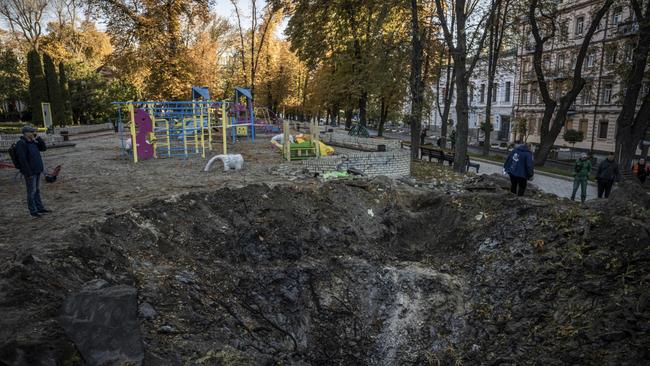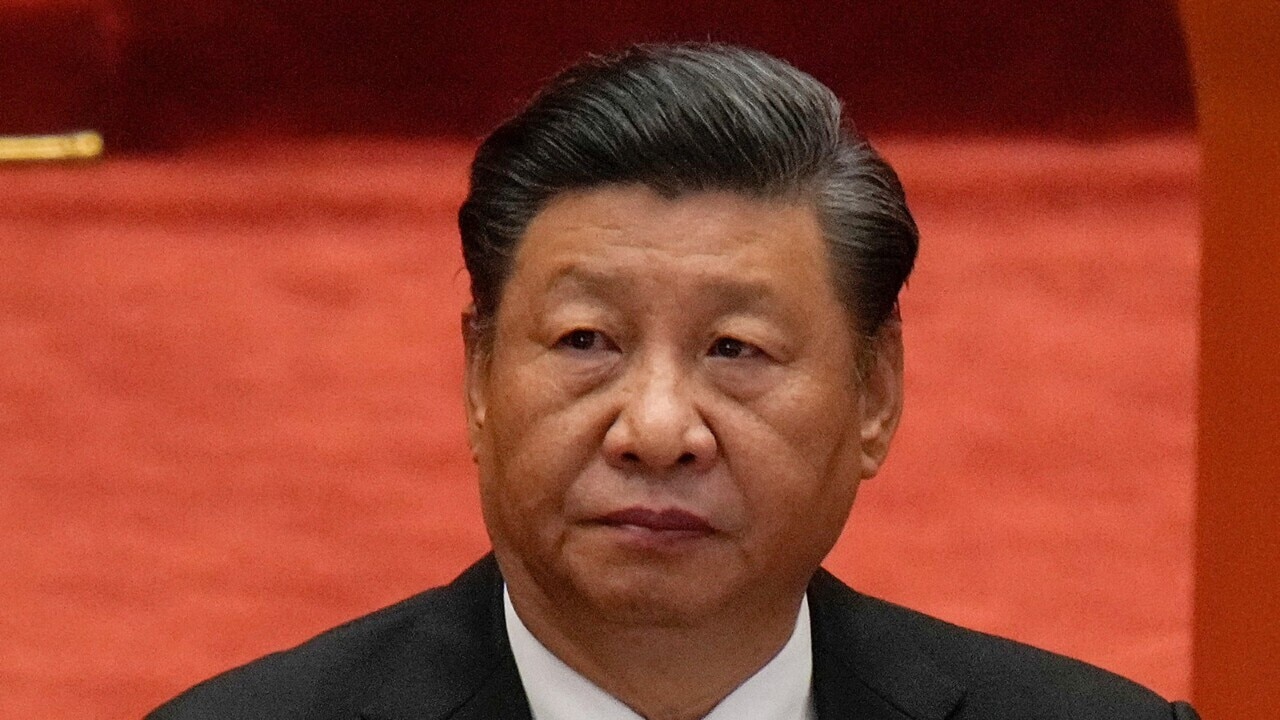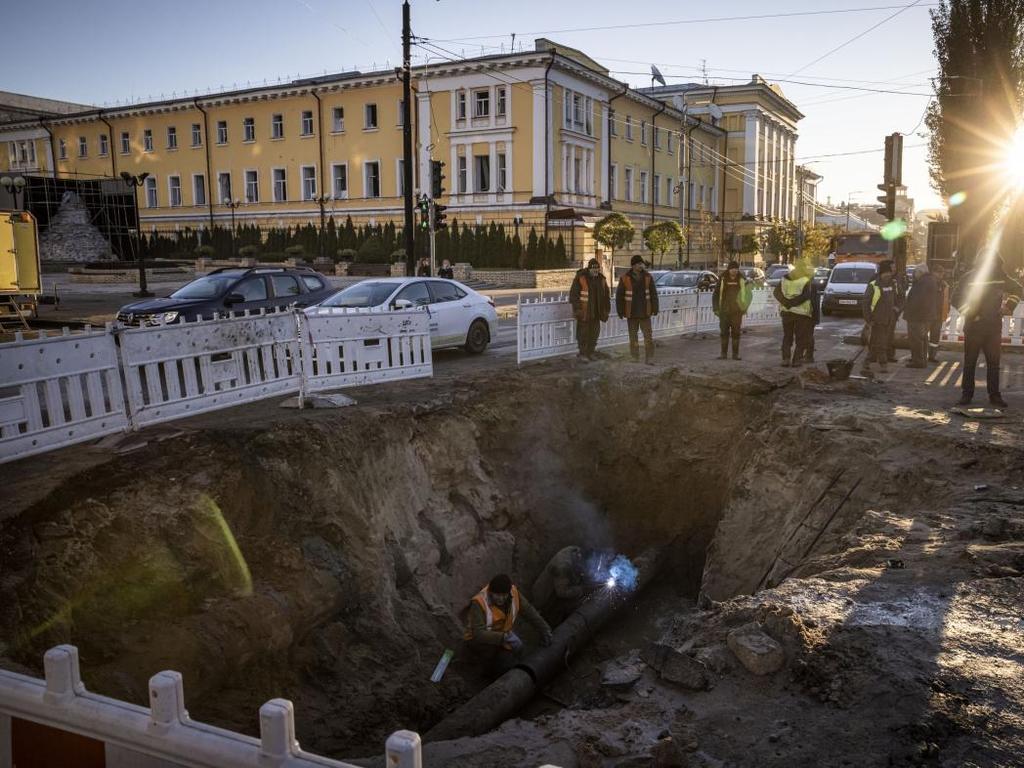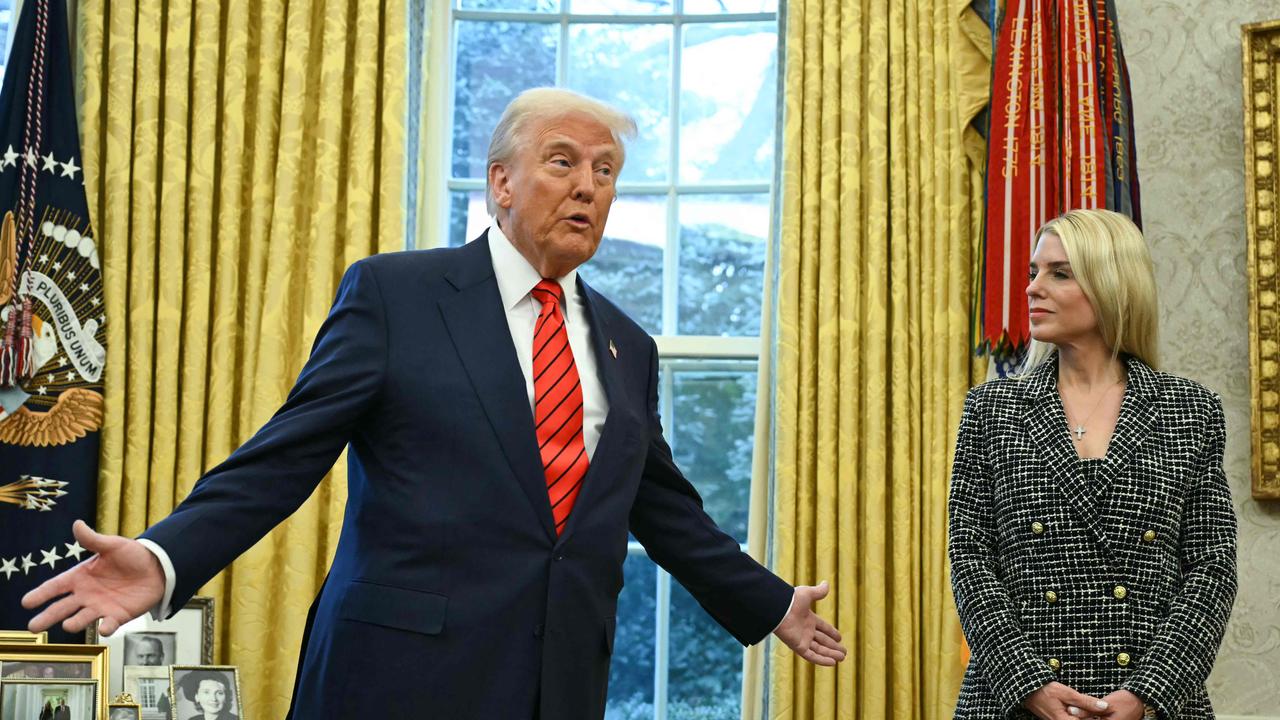
The only credible way of achieving that goal is to inflict a decisive defeat on Putin, forcing Russia’s retreat from the regions it illegally annexed last month, and – if at all possible – from Crimea.
There are those who argue that a defeated Russia would be even more dangerous than it already is, with the Weimar Republic’s fate often being cited as an example of the perils of humiliation.
That analogy caricatures historical reality. As eminent German historian Gerd Krumeich convincingly showed, it was not the humiliation of defeat that undermined Weimar’s fragile democracy; it was the myth of the “stab in the back”.
At the heart of that myth was the claim – vigorously propagated by General Erich Ludendorff and then reprised to great effect by the Nazis – that had the German army, which retained undisputed mastery over its home soil, not been “sabotaged” by the liberals and social democrats in the German parliament, it would have held out, forcing the Allies to a settlement.
It was, in other words, not the stark clarity of the military outcome but its ambiguity that stoked German revanchism, playing a much greater role in the militarist propaganda that helped shatter the Weimar Republic than the Versailles treaty itself.
The point was effectively made by Geoffrey Blainey in his classic The Causes of War (1988): ambiguous outcomes, such as stalemates, are especially likely to be followed by renewed fighting because each state will pursue the victory that has until then eluded it – and it will, quite rationally, fear that its adversary will do the same.
Decisive victory, which highlights the true balance of power between the belligerents, brings that dynamic to a close, stopping the cycle of action, reaction and counter-reaction that fuels repeated descents into death and destruction.
Additionally, consistent with St Augustine’s precept that the end of war must be a “better state of peace”, victory over aggressors can, properly managed, establish the basis for a new status quo that is more readily consistent with international stability.
And defeating aggressors remains the only way in which their war crimes can be brought to account – as well as being crucial in deterring others, such as China’s Xi Jinping, from launching wars of their own.

It is, of course, hardly likely that the war in Ukraine could lead to a Russian capitulation similar to that the Allies, having learnt World War I’s lessons, demanded of the Axis. No matter how abject its retreat from Ukraine, Russia will not cease to exist for the purposes of international law, as Germany did immediately after its unconditional surrender. Nor is it likely that the Putin regime will collapse, or significantly alter its character.
To say that is not to forget that all the epochal periods of liberal reform in Russia have followed disastrous military defeats. Alexander II’s sweeping reforms were a direct response to Russia’s rout in the Crimean War of 1853-56; the “Silver Age” of Russian liberalism came in the wake of Japan’s triumph in the Russo-Japanese war of 1904-05; and Mikhail Gorbachev’s glasnost (openness) and perestroika (reconstruction) were made possible by the Soviet Union’s loss in Afghanistan and by the country’s manifest inability to match the Reagan defence build-up.
But Putin has used, and will continue to use, the war to crush his opponents; and the interests of Russia’s governing kleptocracy are so intertwined with the regime as to make his overthrow improbable. Moreover, instead of drawing, as Nicholas II did, on “constitutional conservatives” of great intellectual stature such as Piotr Stolypin (who served as Russia’s prime minister from 1906 until his assassination in 1911), Putin’s circle is dominated by flunkies such as former president Dmitry Medvedev, who boasted this week that Russia would “dismember” Ukraine.
The question then is how the West should deal with the Putin regime going forward. In a recent paper, Paul Dibb notes that after its defeat in the Napoleonic Wars, France was readmitted as a great power to the Concert of Europe, which sought to manage the post-war state system – the implication being that Russia merits the same treatment. However, Dibb fails to mention the two conditions that were imposed on France as Napoleon was dispatched to St Helena: a complete change in its system of government, making it a constitutional monarchy; and the payment of what Eugene White, the leading economic historian of reparations, has concluded were “the largest reparations ever fully paid”, exceeding on almost every metric those sought (but never obtained) a century later at Versailles.
There is, at this stage, little prospect of forcing Putin’s departure; but sanctions should not be relaxed, nor Putin’s presence tolerated at forums such as the G20, until Ukraine has been fully compensated for its terrible losses.
That is first and foremost a matter of justice, made all the more pressing by the Ukrainian economy’s continuing deterioration. At least 10 per cent of Ukraine’s housing stock, and an even higher proportion of its transport infrastructure, has been destroyed; 35 per cent of the labour force is unemployed; gross domestic product has contracted by some 40 per cent; and, with a yawning budget deficit, the inflation rate is approaching 30 per cent. Western aid is proving invaluable but it barely covers a third of the fiscal shortfall, and almost all of Europe’s financial assistance consists of loans, not grants.
The burden of reconstruction will therefore be immense; it must be covered by Russia, not least through the earnings it made from soaring oil prices. A useful start would be to confiscate and distribute as reparations the currently sequestered assets of Russia’s central bank, as the Allies did with Germany’s central bank assets after World War II.
Large-scale reparations are not, however, just a matter of justice; they are also vital for hindering Russia’s capacity to finance further wars of aggression. As political scientists Joslyn Barnhart and Ayse Zarakol found in their careful analyses of the long-term record, major powers that have not fully recovered from the costs of losing are 70 to 80 per cent less likely than otherwise comparable states to use force in the two decades following a severe defeat.
Unfortunately, none of that will stop Russia’s missiles from murdering Ukrainian children in their playgrounds, families in their homes and the sick and wounded in the country’s hospitals. Nothing can bring them back or ease the grief of those they leave behind; but if Putin is decisively defeated, they will not have died in vain.







Vladimir Putin’s shift to massive, indiscriminate attacks on civilian targets in Ukraine makes it even more important that Russia’s war of aggression not go unpunished.